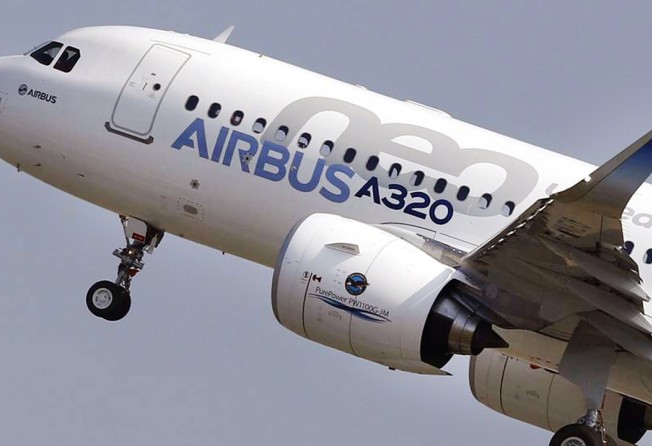Plane economics: If oil is dirt cheap, do fuel-efficient aircraft still matter?

Airbus this week delivered the first of its long-anticipated narrowbody A320neo, its most advanced product to date that is at least 15 per cent more fuel-efficient than current generation of planes, just as oil prices sunk to a nearly 13-year low.
Cathay Pacific Airways will receive its first A350 in the next few months, Airbus’ newest product in the widebody category.
For the past decade Airbus and Boeing have been racing to develop these next-generation, more efficient aircraft, with Boeing’s 737MAX yet to enter service in 2017. Strong demand for these aircraft was in part fulled by the meteoric rise of oil prices after 9/11 in 2001. But as oil prices have now plunged more than 70 per cent from their mid-2014 highs of over US$100 per barrel to under US$30, airlines may be less willing to pay the premium for new aircraft and want to keep the less efficient ones in service for longer.
“Including ownership cost, there is a break-even point,” said aviation consultancy Ascend’s Hong Kong-based analyst Thomas Kaplan.
The list prices of A320neo and B737MAX are around 10 per cent higher than their current-generation versions. “But when you choose an aircraft, you are looking at an economic life of at least 20, 25 years. No one knows where oil price will be in the long run, and airlines plan fleet for growth. Excluding ownership cost, the new-generation aircraft will always be more efficient to operate, even at US$20 per barrel,” Kaplan said.
“You may not be saving as much money, but you are still saving money,” he said.
Airbus this month said it racked up 1,036 new orders in 2015, down 29 per cent from 2014, while Boeing logged 768, down 46 per cent. But Kaplan believes the reduced number for new orders has more to do with earlier orders than low oil prices. Airlines around the world placed a record high amount of orders in 2014 from the two manufacturers, with the backlog now equivalent to seven years of production at Boeing and 10 years at Airbus.
Cathay Pacific said falling oil prices would not affect its plan to retire three fuel-intensive B744, three A340s and take delivery of 12 A350s this year. While the global airlines may have saved US$$91.1 billion on their fuel bills in 2015, according to International Air Transport Association’s calculations, Cathay has not benefited as much because of its wrong bets.
Its hedging contracts that have locked fuel prices at higher than the current levels extend till 2019. Roughly 60 per cent of its 2016 fuel consumption is hedged at around US$85 per barrel, a company spokesman said.
Will Horton, analyst at the Centre for Aviation, said he does not expect the big-picture appeal of new-generation aircraft over older ones to be fundamentally affected even if oil prices continue to drop further as airlines make fleet decisions based on long-term growth plans rather than short-term oil price fluctuations.
“If there were to be seismic changes, we would have seen it when oil came down from US$120 per barrel to US$30,” he said.
Ascend’s Kaplan said it is expensive for airlines to cancel orders, which are scheduled for deliveries well into the next decade.
“If long-term oil price expectations go down to under say US$50 a barrel, the premium the market will be willing to pay for a new-generation aircraft over a current generation will shrink, but the market will still pay a premium. In summary, we can expect new generation aircraft to come into service more or less as planned, but the value premium they will command in the market could come under pressure.”